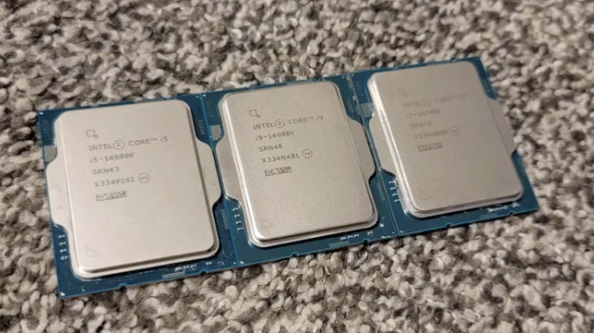
Intel told us today that it will extend the warranty on its boxed Intel Core 13th- and 14th-Gen processors by two additional years. Intel’s warranty extension comes as a result of the crashing and instability issues that have plagued its 13th- and 14th-Gen chips for months. Those issues impact all 65W and higher models, meaning the crashes have a widespread impact ranging from the flagship models down to even the pedestrian mid-range chips. Intel’s processors typically come with a three-year warranty period, so the extension will bring the warranty for most boxed processors to five years.
Intel will issue a microcode update by mid-August to address the crashing issues, which cause PCs to crash/BSOD inexplicably during gaming and other workloads due to what Intel attributes to excessive voltage. The issue can cause permanent damage, and the pending microcode update will not ‘fix’ processors that already suffer from crashing. As such, users with chips that are already crashing will have to return their processors for replacement. However, Intel says the update should prevent chips that haven’t experienced issues from degrading.
For now, it is unclear if CPUs exposed to excessive voltage have suffered from invisible degradation or damage that hasn’t resulted in crashes yet but could lead to errors or crashes in the future. Intel’s extended warranty is obviously intended to allay those fears. Intel also says it is investigating a way to enable easy identification of impacted processors.
Intel’s announcement comes as investigations of the crashing issue begin for a potential class action lawsuit. Intel hasn’t shared the full details of its new warranty extension yet, but it says more details are to come. We do know that some models, like the Special Edition KS models, only have a one-year warranty, but that will now extend to three years. The two-year warranty extension applies to the boxed units found at retail, but Intel’s statement says those with OEM systems should reach out to the manufacturer, hinting that we might also see extensions from OEMs.
The company apologized for its slow response and released a statement reiterating its prior statement that Via Oxidation is not the root cause of the current instability issues. Intel says it first discovered the oxidation issue, which it characterizes as “minor,” in 2022. The company says it instituted fixes and enhanced screening in early 2023 and removed all impacted chips from its supply chain by early 2024. However, it does concede that some chips with Via Oxidation defects could have still been on retail shelves as recently as early 2024.
Here are the company’s statements on both matters:
Intel Two-Year Warranty Extension Statement
Intel is committed to making sure all customers who have or are currently experiencing instability symptoms on their 13th and/or 14th Gen desktop processors are supported in the exchange process. We stand behind our products, and in the coming days we will be sharing more details on two-year extended warranty support for our boxed Intel Core 13th and 14th Gen desktop processors.
In the meantime, if you are currently or previously experienced instability symptoms on your Intel Core 13th/14th Gen desktop system:
- For users who purchased systems from OEM/System Integrators – please reach out to your system manufacturer’s support team for further assistance.
- For users who purchased a boxed CPU – please reach out to Intel Customer Support for further assistance.
Intel is also investigating options to easily identify affected processors on end user systems and will provide additional guidance as soon as possible.
At the same time, we apologize for the delay in communications as this has been a challenging issue to unravel and definitively root cause. – Intel statement to Tom’s Hardware.
Intel Via Oxidation Statement
The Via Oxidation issue currently reported in the press is a minor one that was addressed with manufacturing improvements and screens in early 2023.
The issue was identified in late 2022, and with the manufacturing improvements and additional screens implemented Intel was able to confirm full removal of impacted processors in our supply chain by early 2024. However, on-shelf inventory may have persisted into early 2024 as a result.
Minor manufacturing issues are an inescapable fact with all silicon products. Intel continuously works with customers to troubleshoot and remediate product failure reports and provides public communications on product issues when the customer risk exceeds Intel quality control thresholds. – Intel statement to Tom’s Hardware.






